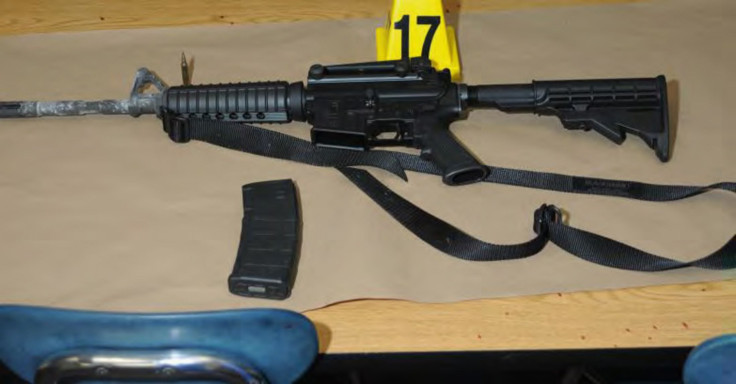Why It Took A Decade For Remington To Settle With Sandy Hook Families
In a historic victory, the families of victims of the 2012 Sandy Hook massacre reached a legal settlement with rifle manufacturer Remington on Tuesday.
The compensation figure reached was $73 million. The families’ victory is the first time victims of a violent crime have successfully sued a gunmaker for their weapons’ use in a crime.
"These nine families have shared a single goal from the very beginning: to do whatever they could to help prevent the next Sandy Hook. It is hard to imagine an outcome that better accomplishes that goal," said Josh Koskoff, the plaintiffs' attorney.
The legal saga began in the aftermath of the Dec. 12, 2012, massacre at Sandy Hook Elementary School in Newtown, Connecticut, when 20-year-old Adam Lanza killed 20 first-graders and six teachers before taking his own life. Lanza’s weapon was a Bushmaster AR-15-style rifle, based on the M-16 service rifle long used by the U.S. military and a weapon that has been common in other massacres since.

After Congressional efforts to pass gun control failed in 2013, nine families sued Remington for marketing its firearms to civilians, specifically at-risk young men such as Lanza. Remington denied this and insisted that it could not be held liable for how its guns were used under a federal law that provides a layer of liability protection to gun stores and manufacturers.
Using the Protection of Lawful Commerce in Arms Act that was passed in 2005, firearms manufacturers have blunted attempts to sue them for how their weapons were used. However, the families’ attorneys made their case on an argument that Remington violated state advertising laws that forbade the marketing or promotion of violence or criminal actions.
The initial proceedings took place in Connecticut state court despite efforts by Remington to move the case to the federal level. In October 2016, Remington appeared to succeed when the lawsuit against it was dismissed with the judge ruling that it was invalid under state as well as federal law.
Three years later, the Connecticut Supreme Court reversed part of the earlier court's rulings in favor of Remington, arguing that it may have violated the Connecticut Unfair Trade Practices Act (CUTPA) by marketing a military-style weapon to civilians. The judge then ordered the case reexamined. An appeal to the U.S. Supreme Court by Remington was made in response, but the court denied hearing the appeal in November 2019 and allowed the families' lawsuit to proceed.
Remington at this point was running into financial challenges. In 2020, the company filed for Chapter 11 bankruptcy protection and began selling off its business units. In July 2021, Remington offered a $33 million settlement to the families that would see each receive $3.7 million in compensation. The families did not accept.
© Copyright IBTimes 2025. All rights reserved.





















